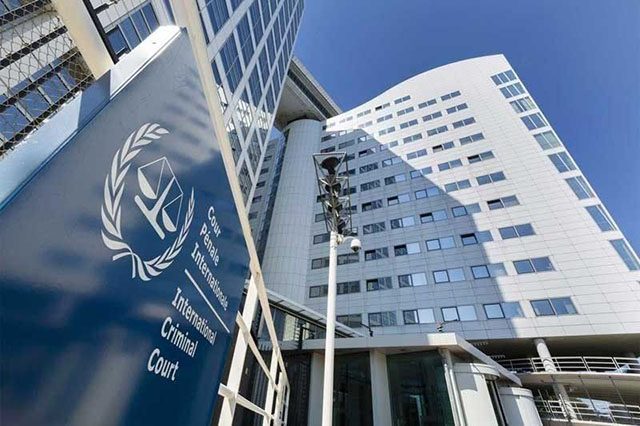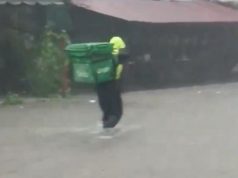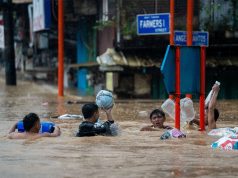
After the International Criminal Court (ICC) Pre-Trial Chamber decided on the resumption of the prosecution’s investigation into former President Rodrigo Duterte’s “war on drugs” campaign, many are asking whether the ICC can issue an arrest warrant to Duterte and the officials involved.
The ICC rejected on Tuesday the Philippine government’s appeal against the authorization of an investigation on the previous administration for probable crimes against humanity.
RELATED: ICC ruling opens way to investigation on killings in Philippines
The ruling was met with mixed reactions from the public. Many Filipinos online expressed joy over the “good news” that justice may be brought upon Duterte and the chief implementer of drug war, Sen. Ronald “Bato” dela Rosa. Others mentioned the warrant of arrest to be issued by the court.
Pinoy Ako Blog author Jover Laurio said in a quote retweet of the recent news, “May warrant of arrest na ilalabas na!”
May warrant of arrest na ilalabas na! https://t.co/kBJjGXgnVP
— Jover Laurio (@PinoyAkoBlog) July 18, 2023
Another Twitter user thanked the ICC and said, “Now let’s wait when will they issue a warrant of arrest for Rodrigo Duterte #ProsecuteDuterte #DutertePalpak #DuterteKriminal.”
ICC’s jurisdiction
Others continue to question the ICC’s jurisdiction over the Philippines given the country’s withdrawal from the Rome Statute in 2019 and the current administration’s stance not to cooperate with the court.
Article 127 of the Rome Statute debunks the claim that the Philippines’ withdrawal should nullify the ICC’s jurisdiction over the country. It states that a country “shall not be discharged, by reason of its withdrawal, from obligations arising from this Statute while it was a Party to the Statute.”
“Its withdrawal shall not affect any cooperation with the Court in connection with criminal investigations and proceedings in relation to which the withdrawing State had a duty to cooperate and which were commenced prior to the date on which the withdrawal became effective […],” the Statute added.
“ICC can’t impose arrest of FPRRD without gov’t cooperation. The ICC operates on complementarity, intervening when a country is unwilling or unable to investigate and prosecute crimes. It requires the gov’t’s consent. National sovereignty plays a role in deciding ICC probes,” a Twitter user said.
ICC can't impose arrest of FPRRD without gov't cooperation. The ICC operates on complementarity, intervening when a country is unwilling or unable to investigate and prosecute crimes. It requires the gov't's consent. National sovereignty plays a role in deciding ICC probes. #ICC
— 👣 Yuan (@andrei_monten) July 18, 2023
These concerns are not unfounded as Article 17 of the Rome Statute, ICC’s founding treaty, states that the court will need the cooperation of countries involved to execute arrests and/or transfer suspects to the ICC.
“A case is inadmissible when the case is being investigated or prosecuted by a State which has jurisdiction over it, unless the State is unwilling or unable to genuinely carry out the investigation or prosecution,” the Statute said.
Given this, the international tribunal may issue an arrest warrant, but imposing one is one of the difficulties it faces.
The ICC also mentioned on its website that the court “does not have its own police force or enforcement body” to conduct arrests and transfers.
Prior to the release of the ruling, Justice Secretary Jesus Crispin “Boying” Remulla said the government will not execute arrest warrants issued by the ICC.
“Wala silang gagawin dito. Wala silang kinalaman dito. Anong gagawin nila? Papasukin nila tayo? Gusto ba nilang pasukin tayo bilang kolonya na naman?” Remulla was quoted as saying last Sunday.
What happens if the Philippines will not comply?
Should the Philippines fail to comply if an arrest warrant is issued, Article 87 of the Statute says the court has the right to:
- Make a formal conclusion that the country failed to cooperate as obligated by the ICC’s rules.
- Vote in referring the case to the Assembly of States Parties or the United Nations Security Council for other possible actions.
If the investigation into Duterte’s drug war stumbles upon a roadblock due to the failure of President Ferdinand Marcos Jr.’s administration to cooperate – and is referred to the Security Council – Chapter VII, Art. 41 of the UN Charter suggests that the Philippines may face stringent measures such as interruption of economic relations and severance of diplomatic relations.
That is if the Marcos administration remains uncooperative in complying with provisional measures recommended and decided by the Security Council.
In a statement on Tuesday, Assistant Solicitor General Myrna Agno-Canuto expressed disappointment over the ICC’s decision to reject the Philippine government’s appeal.
RELATED: Philippines committed to internal investigation of Duterte’s drug war —solicitor general
The Office of the Solicitor General said the Philippines would not be deterred by such a decision.
“The established principle of international law dictates that the Court must satisfy itself of its own jurisdiction and this power to determine its own jurisdiction exists regardless of whether the Court is called upon to exercise this power or not,” the OSG said.
“The minority also strongly pointed out that the Rome Statute is a treaty and “that it is a fundamental right of States to decide whether they want to be bound by a treaty or not.” It, therefore, found that the Philippines’ withdrawal before the Court’s authorization was requested and secured, was a valid exercise of a state prerogative, and divests the Court of jurisdiction,” it added.









